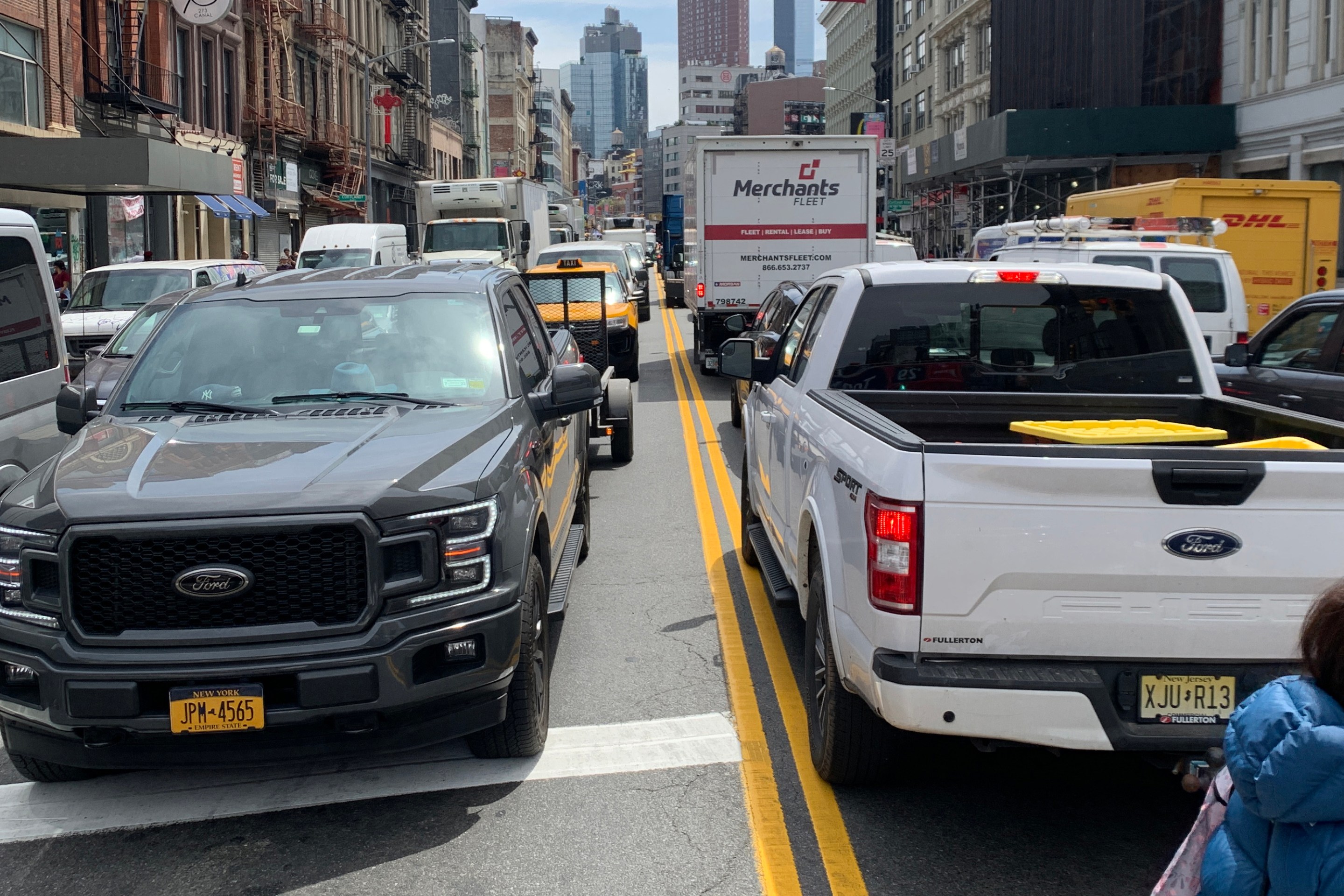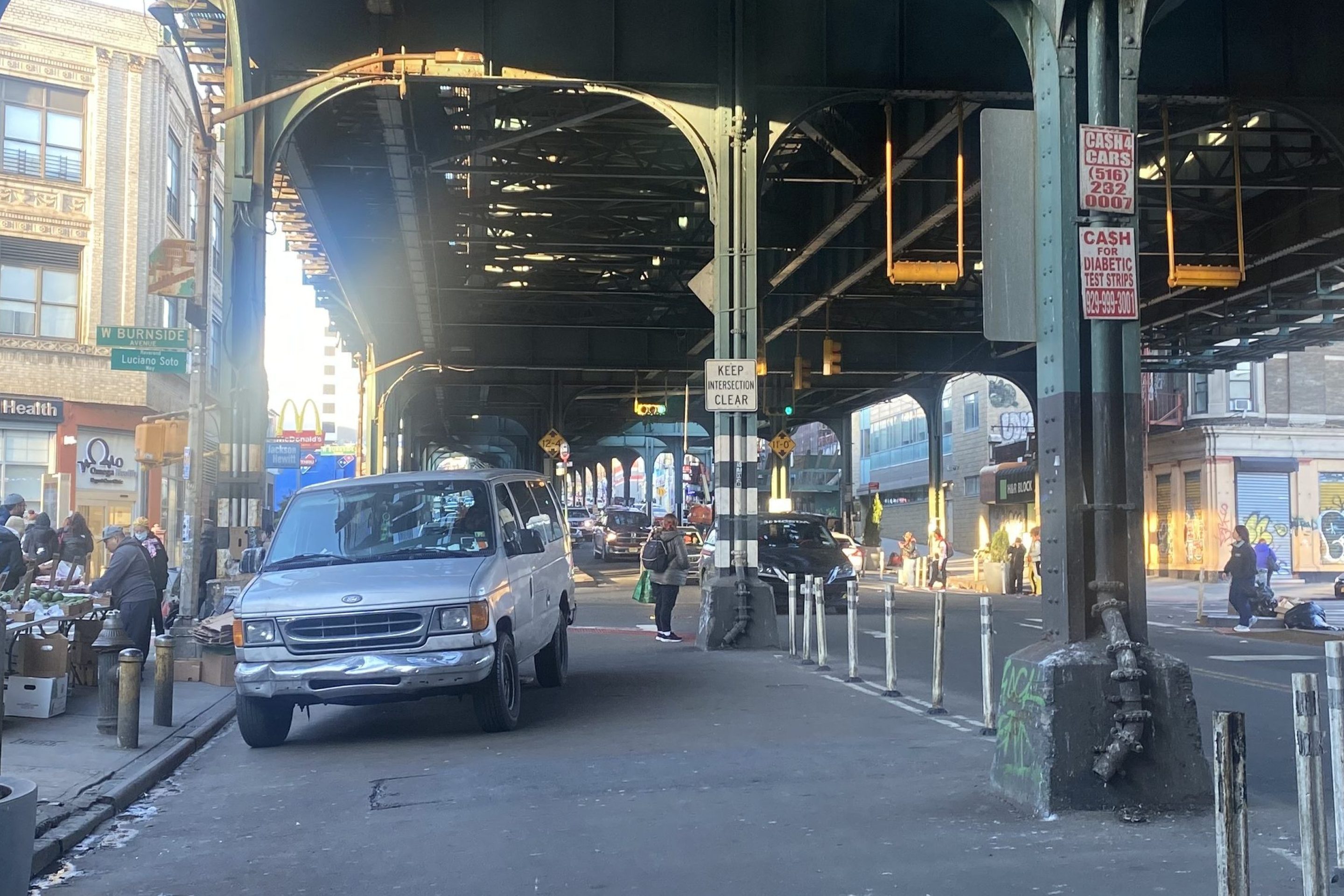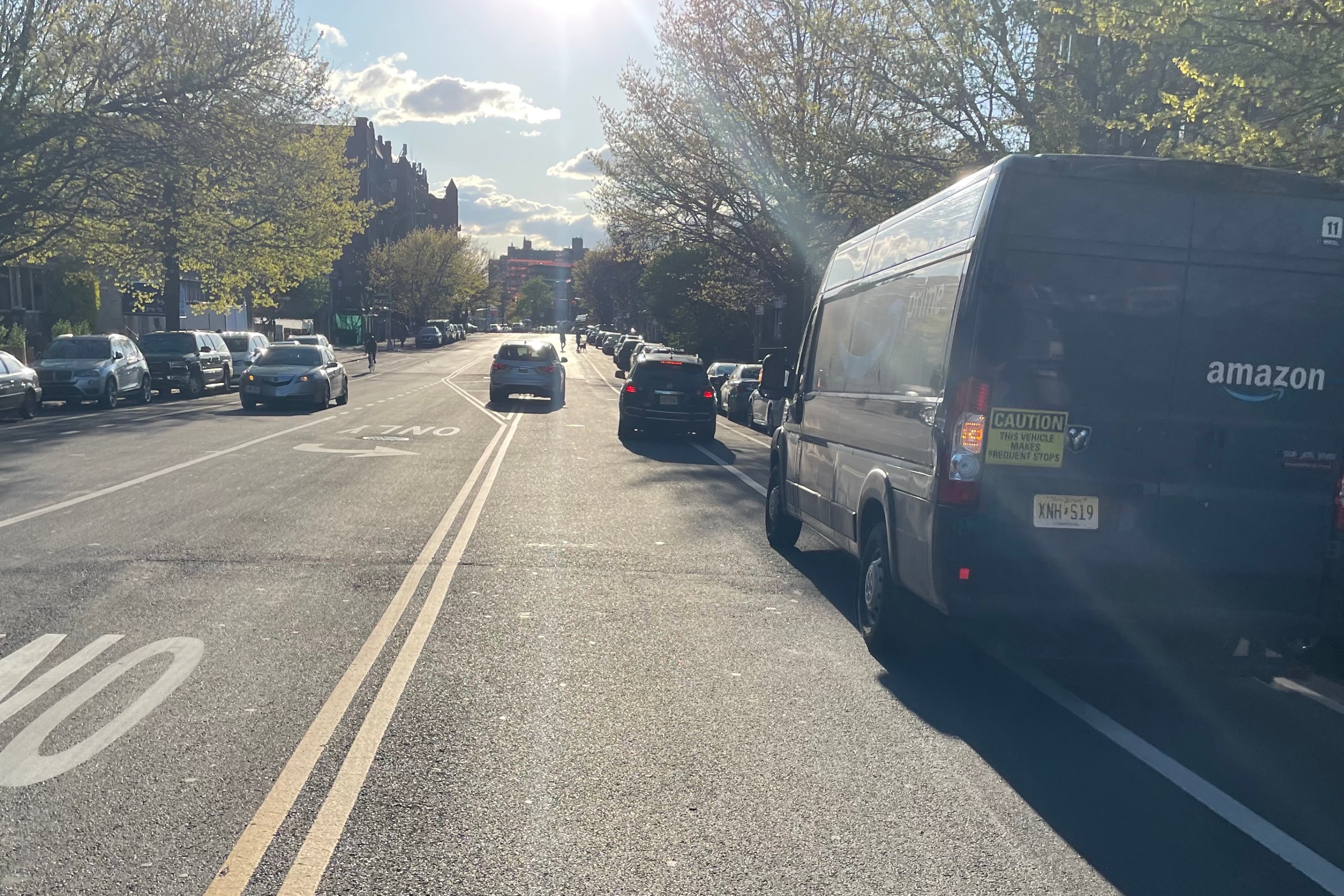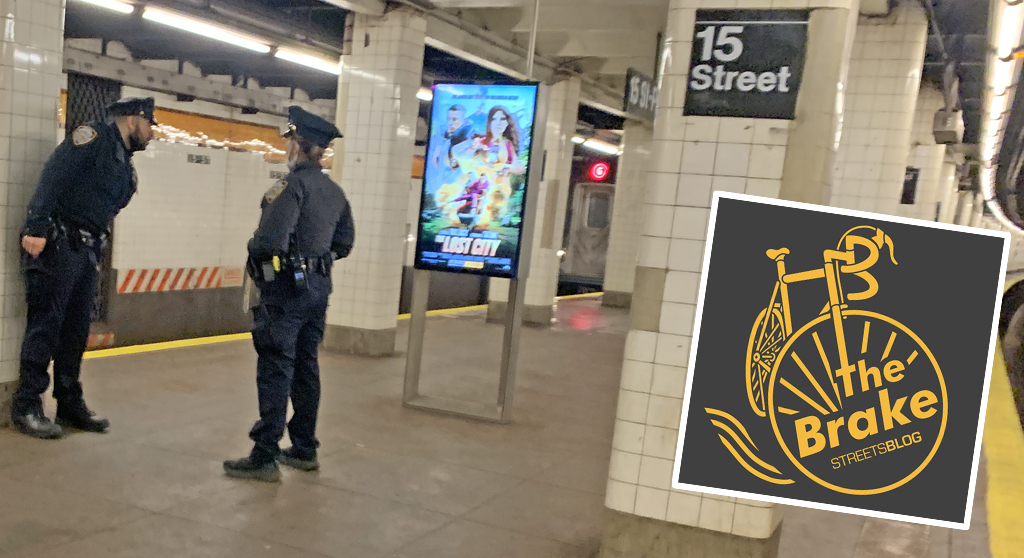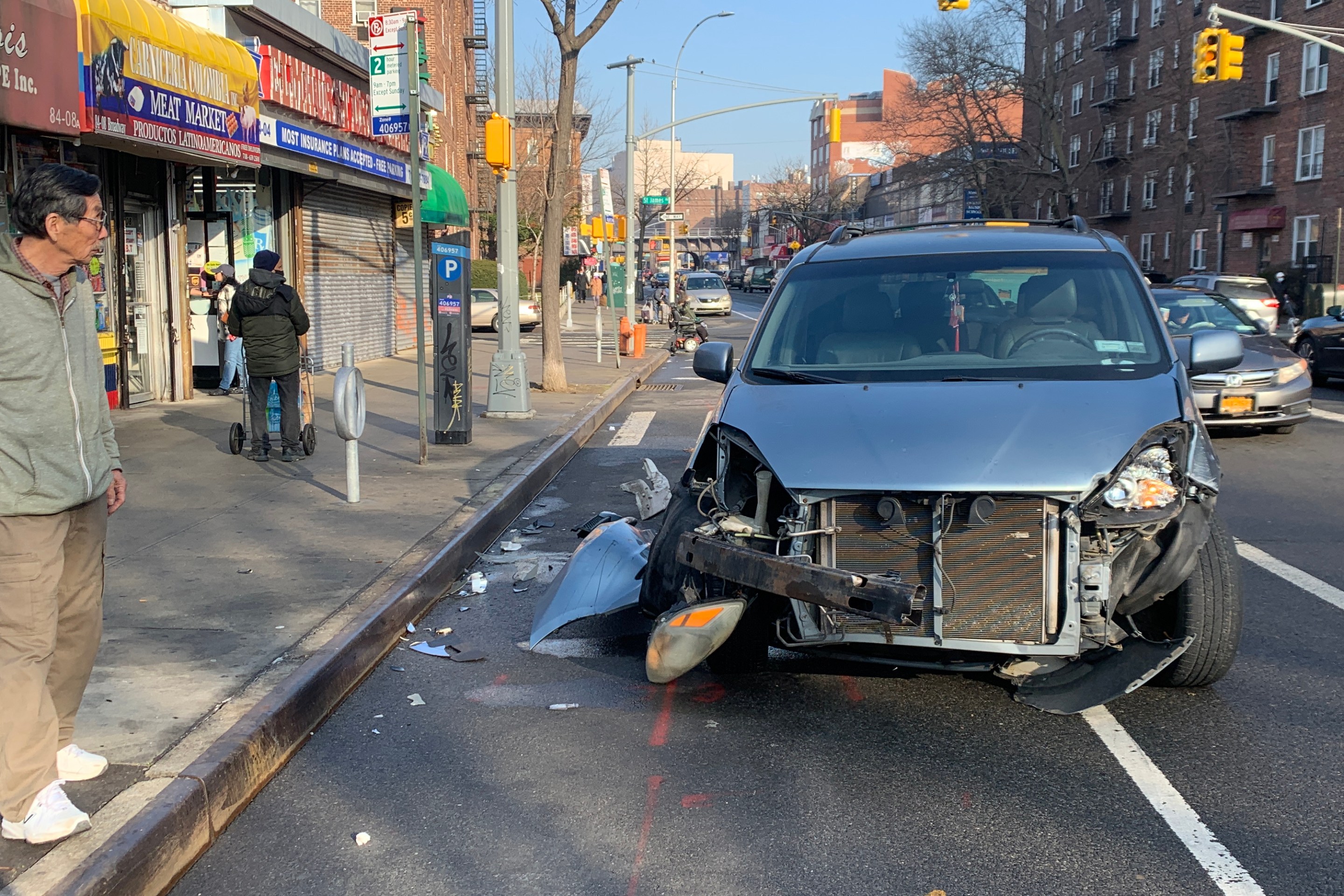The Albany Report Card: A Scoundrel’s ‘F’
This is not a gentlemen's B. This year's overall legislative session was one of the worst on record from a livable streets and street safety perspective — and it's mostly due to one man.
1:53 PM EDT on June 13, 2023
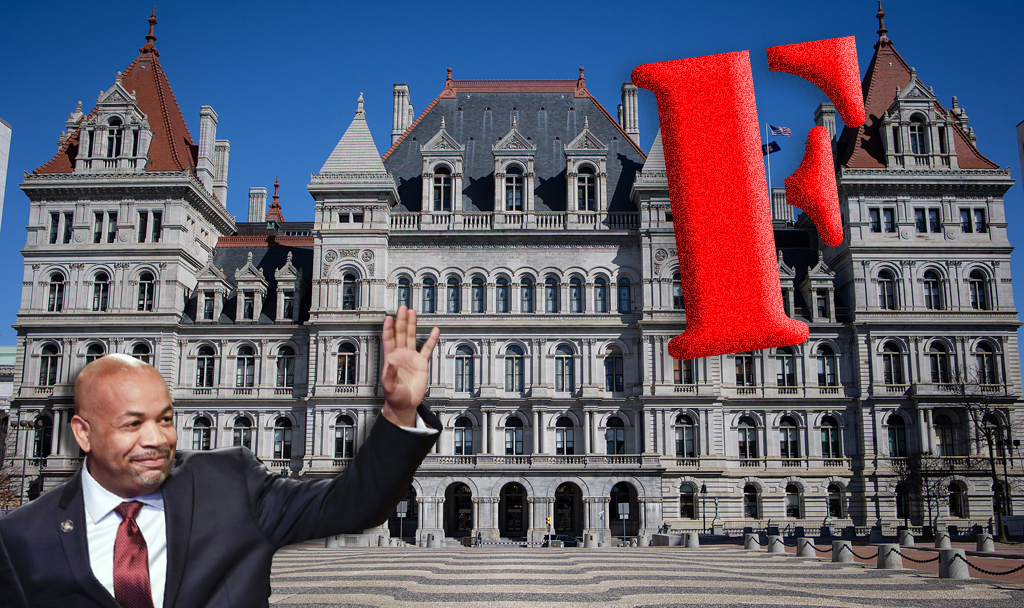
Disgrace.
This is not a gentlemen's B.
It's not news that Albany legislatures skulked out of town last week without passing one of the most-widely supported, least-controversial street safety bills — a rule that would allow New York City to set its own speed limits.
But that's just one bill; this year's overall legislative session was one of the worst on record from a livable streets and street safety perspective.
"We have to give the state legislature an 'F' for wasting an entire session without advancing legislation to make streets safer or to improve public transit," said Eric McClure, the executive director of StreetsPAC. "If Albany isn’t going to act on good legislative ideas, it’s imperative that it hand the authority for action to New York City, and nowhere is this more clear than in the failure of the Assembly to advance 'Sammy’s Law.'"
Put more succinctly? "There is nothing worth celebrating," added Amy Cohen one of two Families for Safe Streets members who staged a hunger strike for 99 hours in hopes of gaining passage of the speed limit bill — which is also called "Sammy's Law" after Cohen's son, Sammy Cohen Eckstein who was killed by a driver in 2013.
What else didn't pass? Here's our unhappy recap:
Passed one house but not the other
The Assembly, which is dominated by New York City lawmakers, was a big part of the problem this session:
The big miss, of course, was Sammy's Law (A7266/S2422A), which would have allowed New York City to set its own speed limits below 25 miles per hour. According to Transportation Alternatives, which tracked lawmakers' commitments, the bill had a majority of support in the Assembly, with 20 Republicans joining 79 Democrats, including a majority of the New York City delegation.
Nonetheless, Speaker Carl Heastie (D-Bronx) and a handful of pro-speeding legislators from the city conspired to bottle up the bill, possibly for good (though the Assembly is set to reconvene later this month).
"I’m pretty devastated,” said Assembly Member Jessica Gonzalez-Rojas (D-Queens). "The opposition comes from members who might have more car-centered districts and may be more transportation deserts. They argue that this would create traffic and their constituents hate it, but there’s a misunderstanding of the bill, because it gives basically the discretion to the city."
Sen. Brad Hoyman-Sigal, who carried the bill in the Senate, called the failure "a bitter disappointment," but he tried to remain diplomatic, chalking it up to a shortened legislative session due to the overdue state budget.
“Moving traffic safety bills requires a lot of effort in Albany and we had an attenuated session due to the budget leaning into April and less time to work with colleagues on advancing bills like Sammy’s Law and others and convince fellow legislators of their value," he said. "It is also the continued car culture that dominates in New York and frankly across the whole country."
Car culture or not, advocates say that at least 15 Assembly members who say they support the bill don’t really support it — and we may never know who they are because they may never be forced to vote on the bill. Most legislatures are accountability avoidance machines, but Albany's is particularly well oiled.
There were, of course, some positives about Albany's six-month workyear: The governor and lawmakers agreed to a state budget that funneled hundreds of millions to the MTA to avert it dropping into the fiscal cliff, reduced the size of a scheduled fare hike, and even created a pilot program for free bus service along one line per borough. And, following Streetsblog's "criminal mischief" campaign, the governor increased the fine for covering a license plate.
Beyond that? Almost nada (A bill to allow New York City to use devices to measure overweight trucks while they're still in motion — which would have passed last year if the city hadn't messed up the language — passed.)
"Members are introducing plenty of bills, but they’re not getting moved; we need leadership and the committee chairs to stop gatekeeping," said McClure. "And all of this is happening, or more accurately, not happening, against a backdrop of an epidemic of crashes and fatalities."
Bills that passed one house only
- Idaho Stop A3986/S2643. This bill would allow cyclists to treat a stop sign as a yield sign, and a red light as a stop sign. "More education and more advocacy is required," said Hoylman-Sigal, who supports the bill, yet nonetheless hears from constituents that they are "nervous about e-bikes and safety for pedestrians and seniors in particular." That said, statistics show that giving cyclists a head start at intersections actually improves safety.
- Passed in the Assembly, but got stuck in the Senate Transportation committee.
- Complete Streets (A1280/S2714). This bill would require cities to include complete street design features in resurfacing, maintenance and pavement recycling projects and further enable safe access to public roads for all users.
- Passed the Senate, but did not make it out of committee in the Assembly.
- E-Bike Rebates (A275/S314): Car drivers who choose an electric vehicle get rebates, and cyclists do not, but this Sen. Julia Salazar/Assembly Member Robert Carroll bill would have remedied. Carroll has long argued that the state's existing "Drive Clean" program has plenty of money for rebates for e-bikes. “It’s such a no-brainer that so many other states have already done ... It feels like the Assembly was the hold-up on so many things we wanted to get done," said Sara Lind, the co-executive director of Open Plans, the livable streets advocacy group. “Right now, e-bikes are expensive and inaccessible to low-income people, but they’re a good mobility option. And if we're concerned about battery fires, we should be helping delivery workers get new bikes with new batteries."
- Passed the Senate, but did not make it out of committee in the Assembly.
- Three-Foot Rule (A4346/S1724): Talk about a no-brainer: This bill would codify that drivers outside of New York City who pass a cyclist must leave a "safe distance of three feet." Think about that: A bill that literally says, "We want a safe distance" couldn't pass in Albany.
- Passed the Senate, but did not make it out of the Assembly committee.
- Helicopter noise (S7216A): Like the weather, everyone complains about helicopter noise, but no one does anything about it — except this time, someone did; Sen. Kristen Gonzalez (D-Queens/Brooklyn) put up a bill that would establish "a tax on noise from non-essential helicopter and seaplane flights" in New York City.
- Passed the Senate, but was not introduced in the Assembly (it will be carried by Carroll, but is unlikely to come up for a vote in that chamber this session).
Didn't pass either house
- Complete Streets (A3180/S100): Like the bill above, this one would have required the consideration of complete street design for certain projects that receive federal or state funding, and as such would have mostly had its impact in upstate New York.
- Did not make it out of committee in either house.
- Cargo bikes (A3874/S1975): This bill would have created a new class of cargo bikes — the electric assist cargo bike that could be 48 inches wide and reach speeds of 12 miles an hour. This is seen as crucial because current law allows for cargo bikes that go faster, but are not allowed to be wider than 36 inches. Bill sponsor Sen. Jessica Ramos says wider bikes will allow for an expansion of bikes being used for deliveries instead of Amazon or FedEx trucks.
- Did not make it out of committee in either house.
- The so-called Crash Victim’s Bill of Rights (A1901/S6278: This bill includes some incredibly common-sense measures such as giving "free and timely copies of all crash reports to crash victims and next of kin" and allowing "victim impact statements...at DMV hearings." No matter.
- Did not make it out of committee in either house.
- Safer Cars (A4057/S1952): This Hoylman-Sigal bill is pretty basic: It would require "any passenger vehicle manufactured after 2024 [and registered in New York State] to be equipped with advanced safety technology."
- Did not make it out of committee in either house.
- Bike Lane Enforcement (A4637/S3304) Assembly Member Zohran Mamdani and Hoylman-Sigal collaborated on a bill that would allow New York City to "establish a bike lane safety program that protects cyclists and holds encroaching motorists accountable through bike lane cameras and monetary penalties."
- Did not make it out of committee in either house.
- Bus Lane Cameras (A2610/S153: Bus lane cameras have proven effective, but authorization to deploy them has a sunset clause. This bill would have expanded the use of cameras and repeal of the sunset of existing bus lane camera enforcement authorization."
- Did not make it out of committee in either house.
- Parking mandates (A5700/S162). This priority of Hoylman-Sigal would have eliminated the rule that forces developers to build more off-street parking in their developments than they might want or is even needed. Parking mandates have proven to raise the cost of housing and increase car use.
- Did not make it out of committee in either house.
Other stalled bills
- Driver accountability bills:
- Assembly Bill A7621 would have suspended the registration of any car that was caught by a city speed camera five times in any 12-month period. (Stuck in both houses.)
- Senate Bill S7397 would have expanded the number of violations that would result in suspension of learner’s permits. (Stuck in both houses.)
- Assembly Bill A6928 would ban the relicensing of drivers who have been twice convicted of certain road violations that caused injury or death. Stuck in both houses.)
- Senate Bill S6425 would allow for speed camera fines to escalate (currently, speeding tickets issued by cameras are capped at $50). (Stuck in the Senate committee; there does not appear to be a corresponding bill in the Assembly.)
- Assembly Bill A6520 would increase the penalty for leaving scene of an accident [sic] that causes a death, increasing the fine from a maximum of $5,000 to $30,000.
- Cracking down on plate crimes:
- Assembly Bill A4891 would have created a pilot program for digital license plates. (Stuck in the Assembly committee; it does not appear that there is a Senate version.)
- Senate Bill S4494 would have created a way for people to report stolen, false, or fraudulent plates. (Stuck in both houses.)
- Assembly Bill A3839 would finally replace the word “accident” with “crash” in all traffic laws. (Stuck in committee, as it has been for years.)
Did we leave anything out? Email us at tips@streetsblog.org.
Kevin Duggan joined Streetsblog in October, 2022, after covering transportation for amNY. Duggan has been covering New York since about 2017 after getting his masters in journalism from Dublin City University in Ireland. After some freelancing, he landed a job with Vince DiMiceli’s Brooklyn Paper, where he covered southern Brooklyn neighborhoods and, later, Brownstone Brooklyn. He’s on Twitter at @kduggan16. And his email address is kevin@streetsblog.org.
Gersh Kuntzman is editor in chief of Streetsblog NYC and Streetsblog USA. He also writes the Cycle of Rage column, which is archived here.
Read More:
Stay in touch
Sign up for our free newsletter
More from Streetsblog New York City
Friday’s Headlines: Canal Street Follies Edition
Manhattan Borough President Mark Levine isn't happy. Plus other news.
Daylight Again: Bronx Community Board Backs Parking Ban at Intersections
The Boogie Down is down with daylighting!
Community Board Wants Protected Bike Lane on Empire Blvd.
Brooklyn Community Board 9 wants city to upgrade Empire Boulevard's frequently blocked bike lane, which serves as a gateway to Prospect Park.
The Brake: Why We Can’t End Violence on Transit With More Police
Are more cops the answer to violence against transit workers, or is it only driving societal tensions that make attacks more frequent?
Report: Road Violence Hits Record in First Quarter of 2024
Sixty people died in the first three months of the year, 50 percent more than the first quarter of 2018, which was the safest opening three months of any Vision Zero year.
